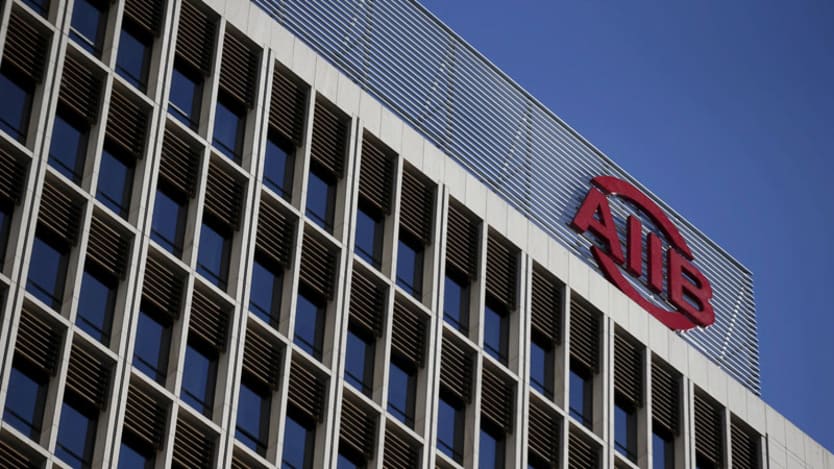
The Asian Infrastructure Investment Bank has sparked much discussion since its inception in 2015. There have been both critics and champions, with much speculation about its operations, priorities, and politics.
Laurel Ostfield, head of communications at the bank, has been leading the strategy since the beginning. Devex spoke to Ostfield about the challenges of building a communications shop from the ground up and how AIIB hopes to position itself among the giants in the multilateral space.
This interview has been edited for length and clarity.
“We are not a Chinese policy bank ... we are not part of the Belt and Road [Initiative].”
— Laurel Ostfield, head of communications, Asian Infrastructure Investment BankYou’ve been in the role of communications head at AIIB for a little over two years and you have helped build the communications and branding function from the ground up. What have been the biggest challenges about positioning AIIB on the global stage?
Awareness and interest of AIIB was extremely high from the very beginning. The media was really open to hearing about AIIB. They were reaching out to us to get more information. We were developing the narrative while we were talking to the media. That was definitely a challenge — that we didn't have that space to think it through, test strategy, test the messages, and then go out with a proactive campaign.
There is a lot of misunderstanding and misinformation about the bank. We are still constantly and consistently having to correct the record, to make sure that people actually understand how AIIB is established as a multilateral — that we are not a Chinese policy bank, that we are not part of the Belt and Road [Initiative].
There's also that aspect of trying to make sure that people actually understand the truth about this organization and separate that from the rumor and innuendo.
What’s been the most effective in shaping the AIIB story?
Traditional media relations have been very effective.
The media as it relates to AIIB is still incredibly influential in the work that we do — ongoing, proactive outreach, reaching out and doing a lot of background interviews to help them [journalists] to understand the bank. That, I find has been a really good use of time and we've gotten a lot of positive feedback.
We have just started to do thought leadership. We've only done one report, keeping the language simple, taking out the jargon — we call it the ‘fundese.’
There’s ‘legalese’ and then there’s fundese, the language of international organizations that says a lot of words but it's very vague and high-level. [We are] trying to keep that under control so that when people are reading or coming across anything that we're putting out, it's in a language they can implicitly understand. We are still very much learning the right approach for our stakeholders.
Are there elements of other multilateral institution communications that you've been inspired by? For example, the World Bank has in recent years made an effort to be transparent in its public communications and on social media platforms. It recently also created a Facebook group. Do you intend to be as transparent? Is that a goal for AIIB?
It depends on what your description of transparency is. Our goal is to be incredibly transparent in access to information. We lean on the side of making things public unless there's an exception, [such as] a public interest that we need to protect. So, on that side, yes, we intend to be as transparent as possible.
“China and many of the people [of] the older generation here were the recipients of aid.”
—Are you using any of the Chinese social media platforms, Weibo or WeChat?
We are not because AIIB only operates in English. If I was going to do a Weibo or WeChat, I would need to do that in Chinese. We have taken the position that we are not communicating broadly in other languages.
Will it stay that way? Or do you hope to expand to other languages?
I see it staying that way for the foreseeable future, to be honest. When it comes to projects, those [documents] get translated into local languages on the ground. But [for] general bank communication, I have a feeling it's going to stay in English for the foreseeable future.
In today's political and global climate, there’s a sense of ‘aid fatigue’ that we can very much feel in the U.S. and in Western countries. What is the appetite for foreign aid in China? What is the conversation around foreign aid?
China and many of the people [of] the older generation here were the recipients of aid. China benefited from the support of organizations like ADB and the World Bank. So there is a different perception of the role of multilateral development banks and what they can do, and the impact that they can have.
The feeling here in China is that they have been able to lift 700 million people out of poverty — now have the second largest economy in the world. They are now in a position where they can give back. That's seen as a sense of pride and a sense of opportunity. A sense of China coming into its own. It’s a very different context than what the West is experiencing.
For us, being in China, the foundations of the bank [have been] somewhat inspired by China's development story, we're always going to want to make sure that we maintain that sense of pride that we currently feel here in the country.








